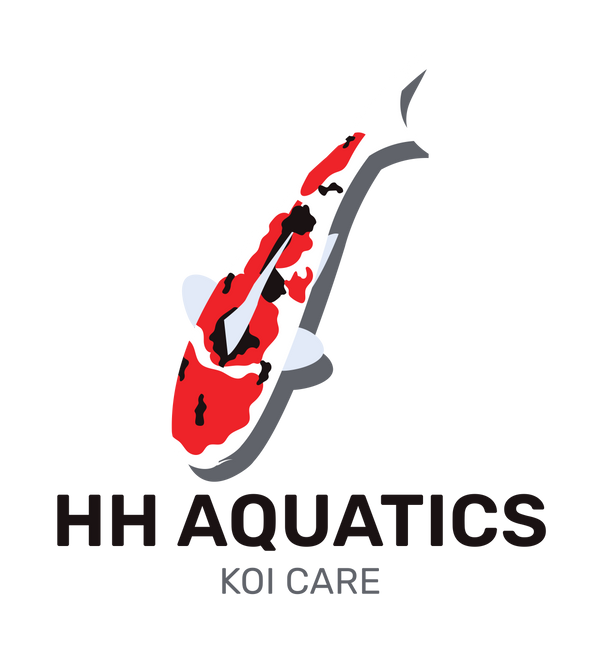Koi Care - Water Keeping
Koi are amazing, gentle and beautiful creatures. They are curious, inquisitive, intelligent and can provide us humans with a significant amount of pleasure. With that in mind, HH Aquatics aim to give you jargon free advice, support and guidance so that you can enjoy the hobby to the fullest.. We have a combined 50 years + experience, rearing 1,000’s of koi and managing 8x ponds of our own between the team. Unfortunately, Koi can become unwell for numerous reasons, and we have vast experience with both our own and client’s Koi.
It all starts with WATER! HH also have a 100% pass certification for the course
Advanced Koi Diagnosis & Treatment from K.O.I
Water
You may have heard the phrase, “we don’t keep Koi, we keep water”. It’s very true. Beginners often do not realise that water is very complex in its makeup - infact, it is a compound! You need to become aware of how water parameters work and impact each other. Those parameters can have a big impact on Koi health! There are other ingredients that can be found in water. in addition to its core elements (hydrogen and oxygen). What comes out of our taps is not pure water and may/will contain chlorine, rust, magnesium, sodium, calcium, fluoride, lead, microplastics, drugs/hormones (yes it’s true) and parasites and bacteria.
Water + Fish
When we add fish to enclosed water bodies such as ponds, we introduce 2 important things - food and fish waste (yes poo and pee - note pee actually is excreted through their gills or the urinary pore at the back end near the tail). The outcome is toxicity in the pond water; unless we can get rid of it or…. convert it. Koi pee is pretty toxic (ammonia).
The Nitrogen Cycle
Fish and uneaten food and organics produce ammonia. Ammonia is toxic to fish so we need to manage it. We do this by cultivating “good” bacteria on our filter media. This good bacteria (called nitrosomonas and others) converts ammonia to nitrite. Unfortunately nitrite is also very toxic to Koi and ideally nitrite levels should be zero. Prolonged exposure to nitrite will cause illness and disease in Koi. So we need nitrite to also be removed (or converted). Luckily another good bacteria called nitrobacter (there are others) converts nitrite to nitrate through oxidation. Nitrate isn’t terribly toxic to fish but prolonged exposure isn’t brilliant either… Plants, algae and other organics consume nitrate so we always recommend plants in a Koi pond. Regular water changes of 10% will also keep nitrate levels in check.
